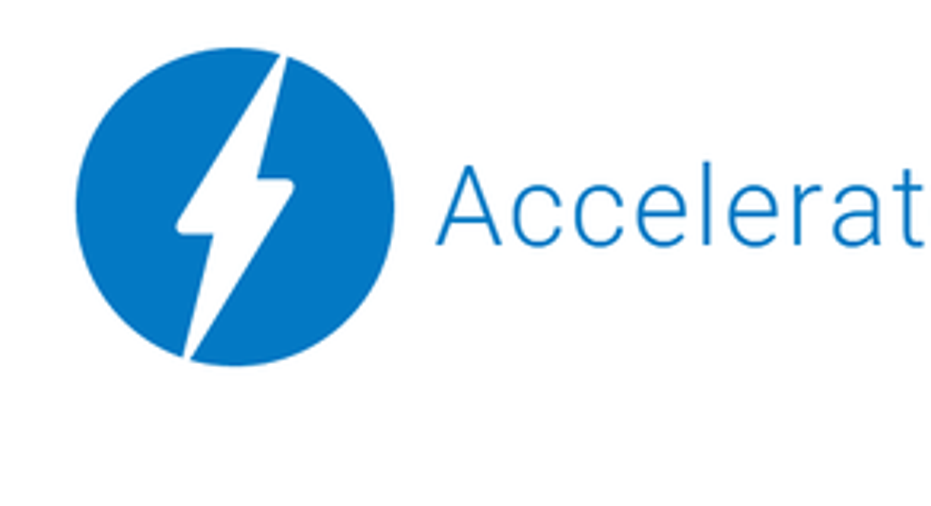Are You AMPed for Alphabets New Initiative?

Google's new AMP logo is shockingly similar to Twitter's Moments logo. Source: Alphabet.
You may have noticed Alphabet's Google searches look different. In the bottom left-hand corner of the search carousel is a green icon with a lightning bolt and the words AMP. If you haven't seen it yet, you will, because it's an important part of the future of the Internet. The answer to why AMP is so important is hidden by its acronym.
AMP is an acronym for Accelerated Mobile Pages, a format that Google claims is four times faster and uses 10 times less datathan a traditional mobile Web page. Of course, therein lies a trade-off for publishers: By opting in to AMP, publishers should see their articles featured in the Top Stories of Google's search results, but it stands to reason a decent deal of this data cut out will be in the form of advertisements, the lifeblood of publishers' revenue.
For publishers, this appears to be further intrusion by distribution and search platforms in the name of user experience. Recently, Facebook and Twitter transitioned from distribution portals to content-hosting platforms with the inclusion of their Instant Articles and Moments features.
A Godfather-like deal ... For publishers, it may appear Alphabet's AMP deal is almost Godfatherian in nature. Although social-media sites such as Facebook and Twitter have become formidable distribution outlets for news organizations, search is still an important part of a publisher's strategy. There's no search engine close to Google's mobile search market share; the company is the default search engine on both its own Android operating system and Apple's iOS.
Finally, there's a noticeable growth in mobile browsing, with Gartner expecting 49% annualized growth over the next two years. Simply put, Google is making an offer publishers can't refuse ... sans the severed horse head, of course.
Digiday points out what publishers are going to have to give up for AMP promotion. Most notably, AMP doesn't allow header bidding, which helps publishers by allowing multiple ad exchanges to compete to place ads on their site. Digiday reports adding an addition header bid source can increase yield (read: revenue) by 10%. Additionally, Digiday reports content marketing widgets like Outbrain and Taboola are also not available on the site, which further hurts publisher monetization.
For the record, Google expects publishers to net more ad revenue from AMP than they do now from mobile ads, presumably because fewer mobile users turn to ad blockers in response to a degraded mobile experience.
It's not exactly like Facebook's Instant ArticlesWhile they may look similar, there are a great deal of differences between Google's AMP initiative and Facebook's Instant articles. Although Google's format strips down the material, the company does not host the actual content like Facebook. Additionally, Google does not take a cut of ad dollars generated on AMP articles, whereas Facebook takes 30% if it places the ad. It seems the biggest similarity between the two programs is a focus on faster-loading Web pages to improve the user experience.
For the end user, this is decidedly a good thing. In an increasingly mobile-browsing world, slow-loading Web pages filled with clunky ads are more than simply a nuisance; they actually cost users money. The New York Times recently found that more than half of all data usage from the top 50 news sites were ads, showing that a large portion of smartphone users' billable data is being spent on undesired content. AMP should help to alleviate this matter to an extent.
The article Are You AMPed for Alphabets New Initiative? originally appeared on Fool.com.
Suzanne Frey, an executive at Alphabet, is a member of The Motley Fool's board of directors. Jamal Carnette has no position in any stocks mentioned. The Motley Fool owns shares of and recommends Alphabet (A shares), Alphabet (C shares), Facebook, and Twitter. The Motley Fool recommends Gartner. Try any of our Foolish newsletter services free for 30 days. We Fools may not all hold the same opinions, but we all believe that considering a diverse range of insights makes us better investors. The Motley Fool has a disclosure policy.
Copyright 1995 - 2016 The Motley Fool, LLC. All rights reserved. The Motley Fool has a disclosure policy.



















